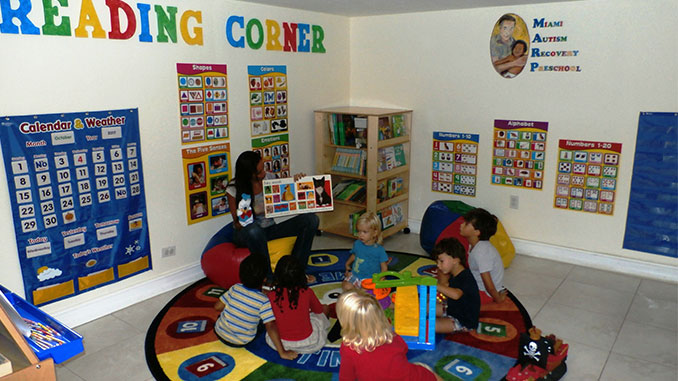
“Is Autism the result of a combination of genetics and environmental toxins overload... "
Published: May 29, 2019
By: Kathy Lebrun
Author Website: Click to Visit
– Sponsored Content –
Have you ever seen in the wild an obese giraffe, a lion with asthma or a zebra with cancer? It’s kind of funny to even imagine it exists! But our loving pets can have all those health issues. So what is the difference between the two? Simple, wild animals eat what they are biologically meant to eat while our pets eat what humans feed them!
Could the same be true for people? Could it be possible that “cancer runs in my family” or “diabetes runs in my family” was just the result of the food each of these families eats every day? What if we forgot our instincts when it comes to food? What if we eat culturally instead of biologically? After all, our jaws are able to move from side to side like herbivores and not only up and down like carnivores do, our intestinal track length is three times the one of a carnivore; our saliva is alkaline like the ones of herbivores and not acidic like the ones of carnivores. So what if our favorite fried chicken, our delicious vanilla ice cream or tasty pepperoni pizza are the source of our health issues? Now you would ask me, how does all that have anything to do with autism? Well, think about it this way, we all know consuming too much alcohol has a direct effect on our behavior, but what people don’t realize is that everything we eat can have an effect on our behavior. It’s not as obvious as alcohol but you can’t deny how hyperactive kids can get on Halloween night! Their cool superhero costume will definitely get them excited but the over-consumption of sugar will trigger their hyperactivity. So now, take our autistic population and try to find out what they all have in common. And there it is, 98% of children on the spectrum have a MTHFR mutation. The MTFHR mutation affects everything from the body’s ability to remove toxins all the way to immune function. Most of them also have gastrointestinal (GI) issues such as constipation, diarrhea, abdominal pain, and inflammatory bowel disease. Removing toxins from their food and their environment is key. Removing the food that inflames their GI tract is also key. Most parents of children on the spectrum try the Gluten-free, Dairy-free (GFDF) diet which has been proven to have a positive impact on kids’ behavior. But it is not a “one size fits all” and it’s often not enough because there is more to it that an inflamed GI tract. There is also the presence of heavy metal in the body such as mercury and aluminum, not to mention the low level of essentials vitamins and minerals.
So how can we help them? Taking the road of biomedical treatments can make a huge difference. Get their Igg test done to find out what food they are intolerant to and remove it from their diet, feed them 100% natural and organic food, add supplements to their diet, give them non- dairy probiotics, remove environmental toxins by using green cleaning products, natural body products, 100% cotton clothes, throw away their light up shoes that contain mercury, don’t let their dentist put metal filling in their mouth…
I am myself a parent of a child on the autism spectrum. My little boy who was once constantly sick with a bloated stomach, an eternal cold and without being able to say a word, can now look at me straight in the eyes, wave goodbye and say “I love you mommy” when I drop him off at school. We changed our lives upside down, relearned to eat the way we were biologically meant to eat, and cleaned our environment from toxins. It’s not an easy journey to embark to but it’s worth it. So when I hear someone tell me “Autism is a mystery! We don’t know where it is coming from” I simply answer, “Autism is the result of a combination of genetics and environmental toxins overload. There is a huge biological component to autism. Combining therapies and nutrition is the most effective way to put children on the road to recovery.”
Kathy Lebrun is Owner and Director of Miami Autism Recovery Preschool in North Miami. For more information about MARP call 786-251-4092 or visit http://www.miamiautismrecoverypreschool.com
